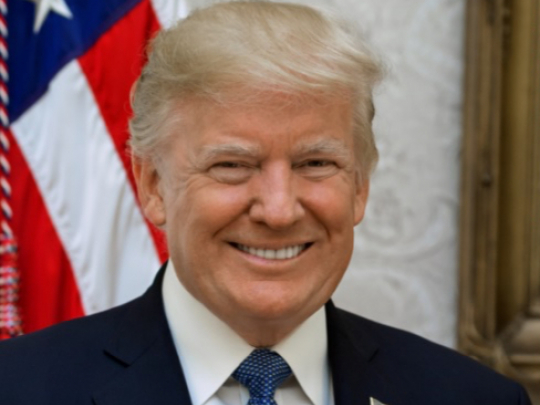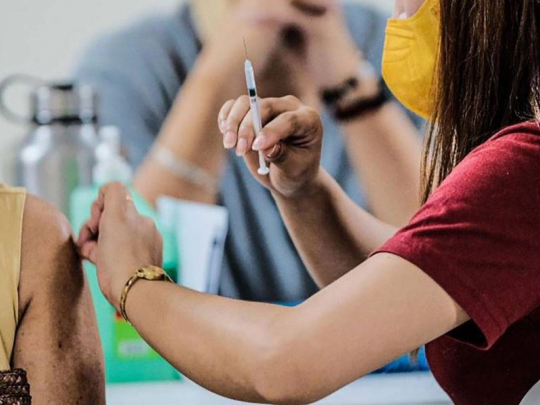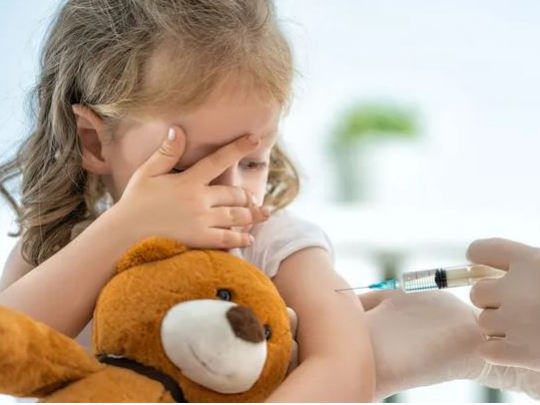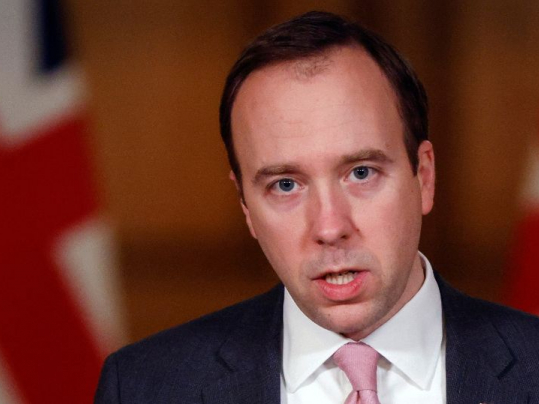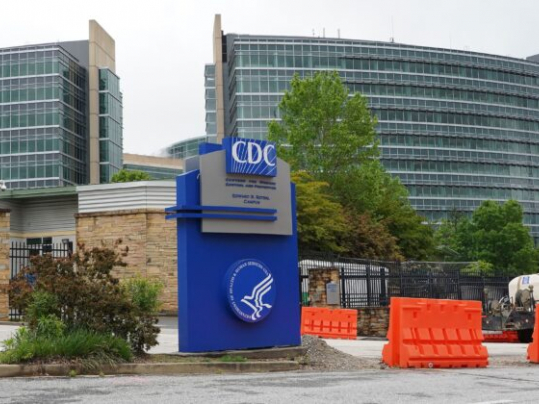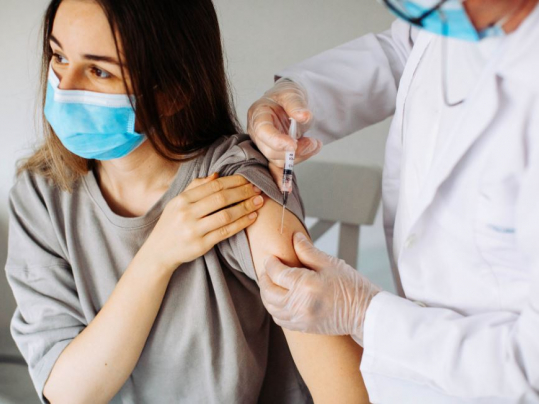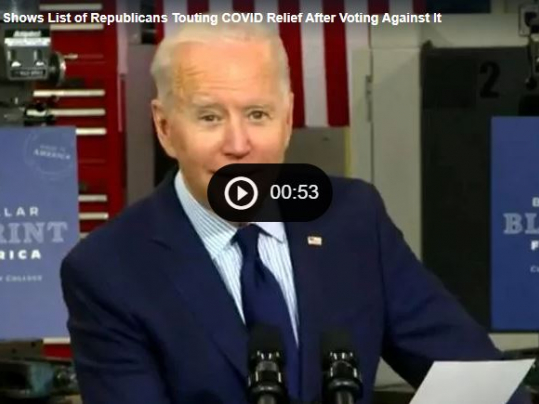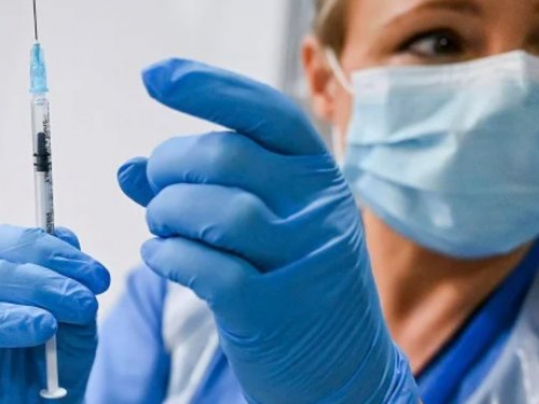Was Trump right about hydroxychloroquine all along? New study shows drug touted by former president can increase COVID survival rates by 200%
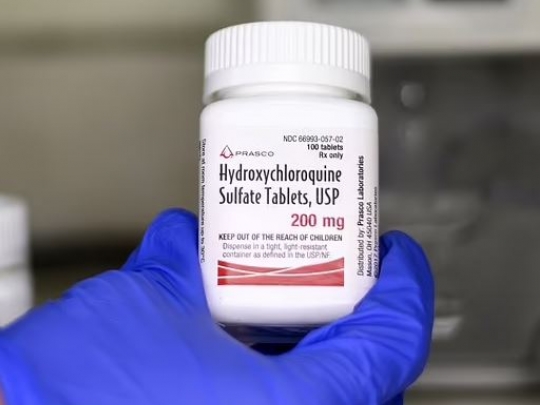
A malaria drug which Donald Trump was condemned for hailing as a possible COVID-19 treatment can increase survival rates by up to 200 per cent, scientists say.
Scientists found that, when ventilated patients with a severe version of COVID were given high doses of hydroxychloroquine with zinc, their survival rates could increase dramatically.
Trump said in March 2020 he was taking it to prevent him catching the virus, rather than treat it. He did not become infected until October, and was not treated with the drug.
The former president had previously touted hydroxy as a potential miracle treatment, with scientists lining up to insist he was wrong to do so.
Yet Trump's allies on Wednesday were highlighting the study, conducted by Saint Barnabas Medical Center in New Jersey on 255 patients.
It was published on May 31 on the medical site medRxiv.
A new study, published on the medical site medRxiv on May 31, suggests that severely-ill patients on a ventilator could be helped in their COVID-19 battle by a high dose of hydroxychloroquine (above) and zinc - as promoted by Donald Trump
Trump's spokesman, Jason Miller, tweeted: 'Oh.'
He quoted: 'Study shows hydroxychloroquine and zinc treatments increased coronavirus survival rate by almost three times'
His son, Donald Trump Jr, said: 'In the last week alone, we've learned that the media, so-called fact checkers and their Big Tech enforcers lied to us about the lab-leak theory, Hydroxychloroquine and the clearing of Lafayette Square.
'All to hurt Donald Trump.
'What else are they lying about?'
Marjorie Taylor Greene, the stridently pro-Trump congresswoman for Georgia, tweeted: 'How many people died bc Dr. Fauci said trust the science and Hydroxychloroquine isn't effective?
'New study shows: Hydroxychloroquine + Azithromycin therapy at a higher dose improved survival by nearly 200% in ventilated COVID patients.
'Trump was right.' The former president has been banned from all major social media platforms, and has yet to issue his own statement about the new findings.
In April 2020, Trump declared: 'We bought a tremendous amount of hydroxychloroquine, which I think is, you know, it's a great malaria drug.
'It's worked unbelievably, it's a powerful drug on malaria. And there are signs that it works on [coronavirus], some very strong signs.
'And in the meantime, it's been around a long time, and also works very powerfully on lupus. So there are some very strong, powerful signs, and we'll have to see.
'Because again, it's being tested now, this is a new thing that just happened to us, the invisible enemy, we call it.'
He continued: 'It's a very strong, powerful medicine, but it doesn't kill people. We have some very good results and some very good tests. You've seen the same test that I have.
'In France, they had a very good test. But we don't have time to go and say, gee, let's take a couple of years and test it out. And let's go and test with the test tubes and the laboratories.
'We don't have time. I'd love to do that.'
A month later, on May 28, 2020, he shocked attendees during a roundtable event at the White House by saying: 'I happen to be taking it.
'A lot of good things have come out. You'd be surprised at how many people are taking it, especially the front-line workers. Before you catch it. The front-line workers, many, many are taking it.'
He added: 'I'm taking it, hydroxychloroquine. Right now, yeah. Couple of weeks ago, I started taking it. Cause I think it's good, I've heard a lot of good stories.'
White House physician Dr. Sean Conley released a memo that evening, which said that after discussing evidence for and against hydroxychloroquine with Trump, they concluded 'the potential benefit from treatment outweighed the relative risks.'
Trump's support of the unproven drug was described by critics as reckless and dangerous at the time. He caught COVID in October, and was admitted to Walter Reed Medical Center after struggling to breathe, but later recovered after receiving a then-experimental antibody therapy.
On August 22, Trump continued to tout the benefits of hydroxychloroquine. He would catch the virus two months later and be taken to hospital with severe symptoms
Last summer, Twitter restricted the account of Trump Jr after he posted a video of doctors touting the effectiveness of the drug. The social media platform accused him of 'spreading misleading and potentially harmful misinformation' related to the coronavirus.
In March of this year, the World Health Organization warned against using the drug to prevent the coronavirus, citing data suggesting it was ineffective.
Yet the authors of the new report state: 'We found that when the cumulative doses of two drugs, HCQ and AZM, were above a certain level, patients had a survival rate 2.9 times the other patients.
'By using causal analysis and considering of weight-adjusted cumulative dose, we prove the combined therapy, >3 g HCQ and > 1g AZM greatly increases survival in Covid patients on IMV and that HCQ cumulative dose > 80 mg/kg works substantially better.'
Hydroxychloroquine is still an unproven drug for COVID treatment.
Trump is seen on February 28. His supporters have seized on reports showing encouraging signs about hydroxychloroquine
Early in the pandemic, Dr Anthony Fauci, the nation's top public health expert, expressed interest in the drug, but he maintained that more data was needed to prove its efficacy.
Fauci's emailed comments on hydroxychloroquine line up with what he said in public and the scientific consensus about the drug.
Republican critics, however, accuse him of secretly supporting the drug - although there is no evidence to prove it.
Several other studies in recent months, after Fauci's email, have found that hydroxychloroquine can be effective in certain situations.
A December study from the International Journal of Antimicrobial Agents showed 84 per cent fewer hospitalizations among patients treated with the drug, and a January study, conducted by Hackensack Meridian Health, found encouraging results in patients with mild symptoms who were treated with the drug.
- Source : Harriet Alexander




